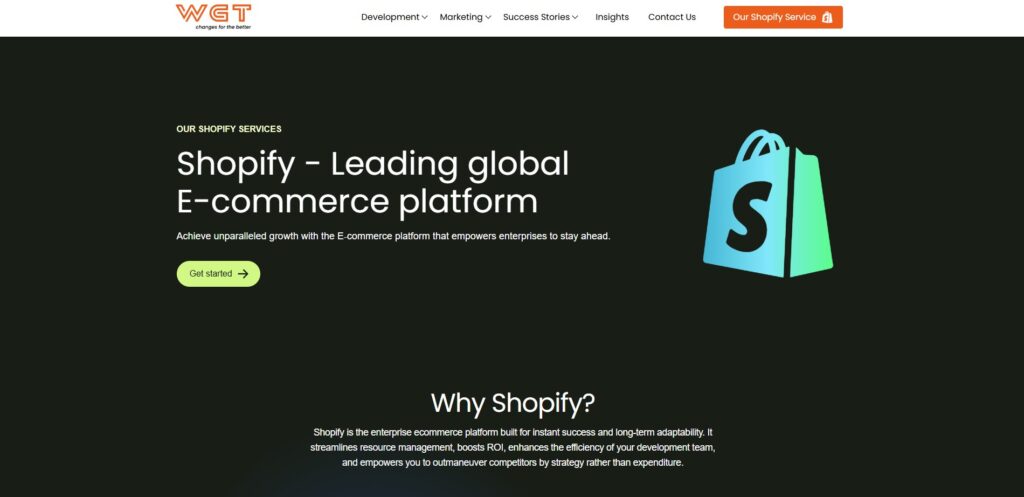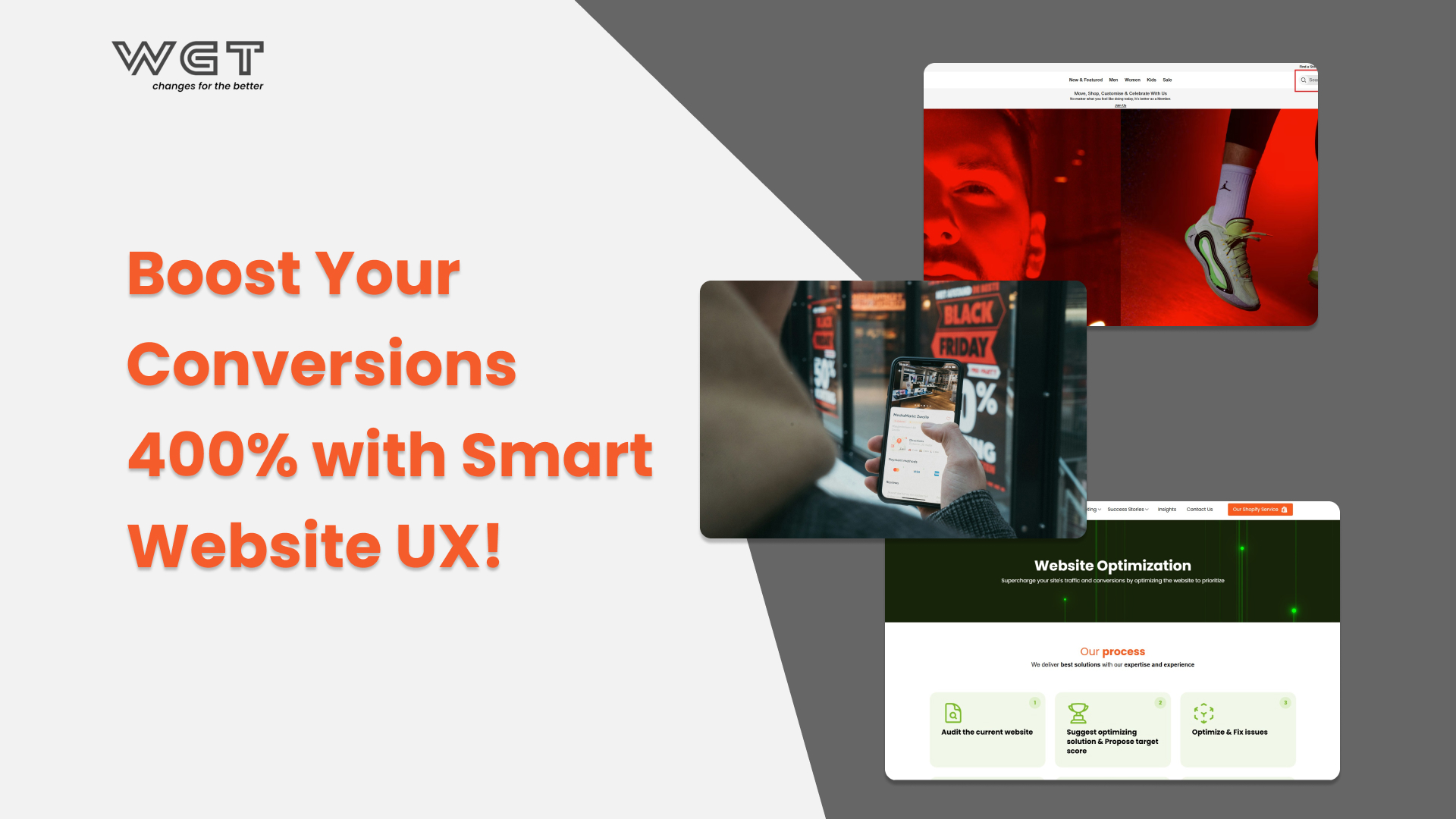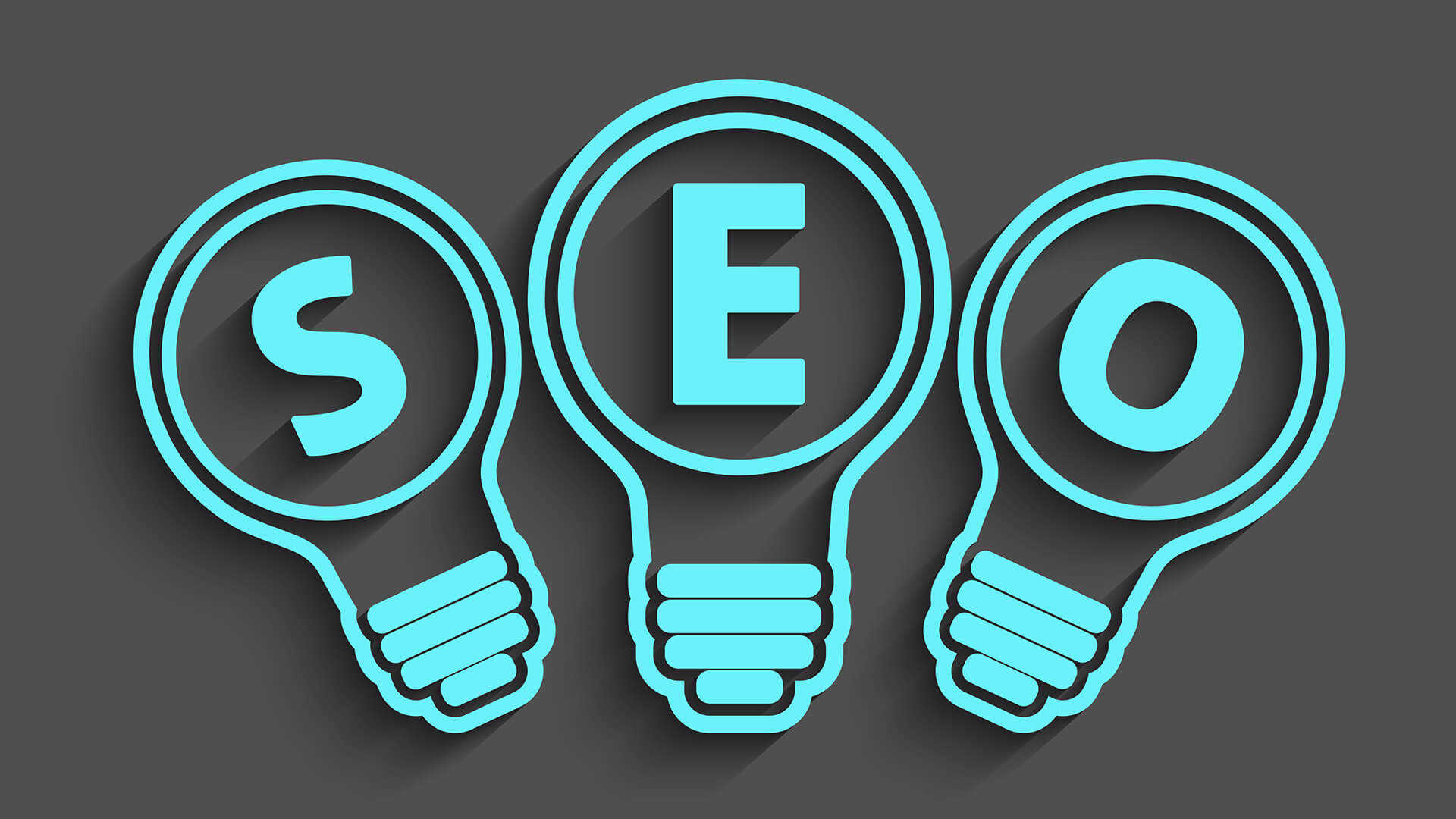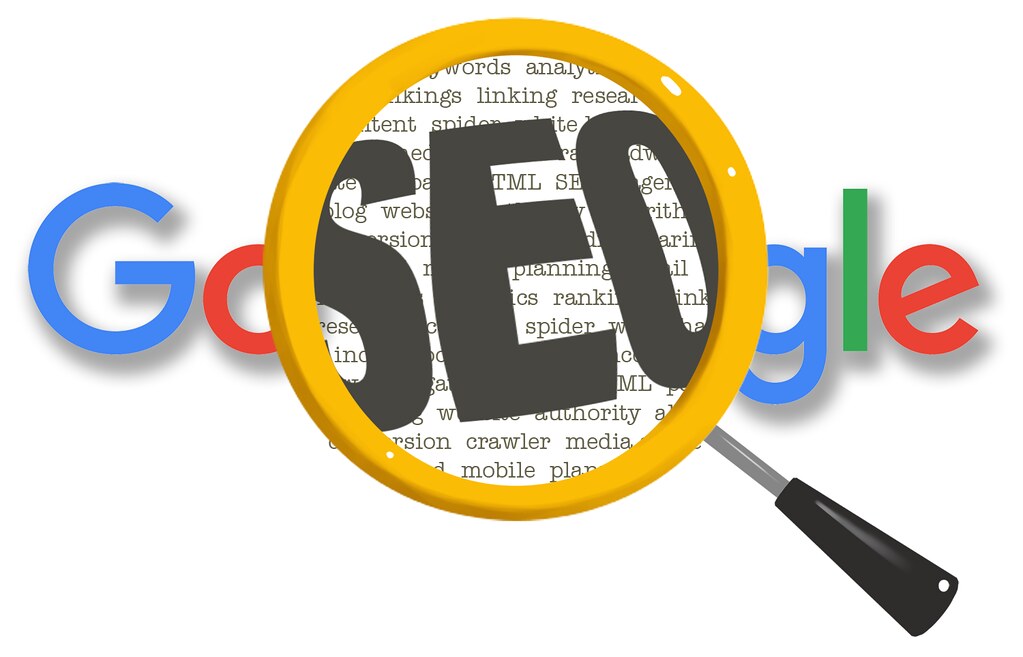In 2025, establishing a strong online presence is no longer optional for businesses — it’s essential. The foundation lies in choosing the right eCommerce Platform.
But with a wide range of choice for eCommerce platforms available, from giants like Shopify, WooCommerce, Magento, and BigCommerce to user-friendly options like Wix eCommerce, how do you select the best eCommerce platform for your specific needs?
This guide dives deep into comparing the top eCommerce platforms, analyzing their features, scalability, and SEO-friendliness, to help you make an informed decision and launch a successful online store.
Whether you’re a startup or an enterprise, finding the right eCommerce platform is the first step to building a thriving eCommerce business.
Introduction to eCommerce Platform
Before diving into the specifics of choosing the right eCommerce platform, it’s crucial to understand the fundamentals of eCommerce websites and their significance in today’s digital marketplace.
An eCommerce website isn’t just an online brochure; it’s a dynamic sales channel, a customer service hub, and a brand-building tool all rolled into one. Let’s explore what defines an eCommerce website and why it’s become indispensable for businesses aiming for growth and success.
Definition of Ecom Websites
An eCommerce website, at its core, is an online platform that enables businesses or individuals to buy and sell goods or services over the internet. These websites facilitate transactions, allowing for product browsing, order placement, payment processing, and often, customer service interactions. Unlike a traditional website that primarily offers information, an eCommerce website is designed with transactional capabilities as its primary function.

The key difference lies in the functionality. Traditional websites are often focused on providing information, such as company details, blogs, or portfolios. While they might have contact forms or calls to action, they don’t inherently support online transactions.
eCommerce websites, on the other hand, are specifically built to handle these transactions. They include features like product catalogs, shopping carts, secure payment gateways, order management systems, and inventory tracking.
To illustrate the power of eCommerce, here are a few examples of successful eCommerce stores: Many stores built on Shopify, you can check for their base by Ctrl+U to view page source, then Ctrl+F to find “Shopify”.
Importance of A Well-Optimized eCommerce Website in 2025
In an increasingly digital world, a well-optimized eCommerce website is no longer a luxury but a necessity for businesses aiming to thrive. Here’s why:
- The rise of digital shopping & mobile commerce
The shift towards online shopping and mobile commerce is undeniable. According to eMarketer, Global eCommerce sales will reach $6.86T in 2025, an 8.37% increase from 2024. The sales will continue growing at a CAGR of 7.8% between 2025 to 2027 and surpass $8T by 2027.
Consumers are comfortable making purchases from their computers and, more importantly, their smartphones. To capture this growing market, businesses need eCommerce websites that provide seamless and user-friendly experiences across all devices.
- Competitive advantage with fast, SEO-friendly, scalable platforms
In the crowded online marketplace, visibility is key. A fast, SEO-friendly eCommerce platform can significantly improve search engine rankings, driving organic traffic to your site. Moreover, scalability ensures that your website can handle increased traffic and sales volume as your business grows, providing a crucial competitive edge.
- Customer expectations for speed, security, and user experience
Today’s online shoppers expect nothing less than speed, security, and a smooth user experience (UX). Slow-loading websites, security breaches, or clunky navigation can quickly lead to lost sales and damage brand reputation. An optimized eCommerce website addresses these concerns, fostering trust and encouraging conversions.

Key Challenges in Setting Up and Scaling an eCommerce Store
Setting up and scaling an eCommerce store presents a unique set of challenges for businesses. Navigating these complexities effectively is crucial for long-term success. Here are some of the key hurdles:
- Choosing the right eCommerce platform
Selecting an eCommerce platform is a foundational decision. Businesses must weigh factors like cost, features, scalability, and ease of use to ensure the platform aligns with their current needs and future growth plans.
- Balancing customization with ease of use
Many stores struggle to find a platform that offers both robust customization options and a user-friendly interface. There’s often a trade-off between having full control over the design and functionality and being able to set up and manage the store efficiently.
- Managing costs & payment gateways
eCommerce involves various costs, including platform fees, transaction fees, payment gateway charges, and development expenses. Managing these costs effectively and integrating reliable payment gateways are critical for profitability and customer trust.
- Ensuring scalability as the business grows
Scalability is a significant concern for growing businesses. An eCommerce platform must be able to handle increased traffic, transactions, and product volume without compromising performance or user experience.
- SEO & technical optimization for visibility
In the competitive online landscape, search engine optimization (SEO) and technical optimization are essential for driving organic traffic and maximizing visibility. Businesses must address factors like site speed, mobile responsiveness, URL structure, and keyword optimization to rank well in search results.

What This Guide Covers:
- A deep dive into the best eCommerce platforms
- Key factors to consider when choosing a platform
- Recommendations based on business size & goals
Choosing the Right Platform for Your Ecom Website
The eCommerce platform you choose is the backbone of your online business. It will dictate everything from your website’s design and functionality to its scalability and marketing capabilities. Selecting the right platform is a critical decision that can significantly impact your success.
To help you navigate this crucial step, we’ll begin with an overview of some of the most popular eCommerce platforms available today.
Overview of Popular eCommerce Platforms
| Platform | Overview | Pros | Cons |
| Shopify | Best for beginners & businesses that want an all-in-one solution | Easy setup, secure hosting, large app marketplace | Monthly fees, transaction costs for non-Shopify Payments |
| WooCommerce | Ideal for businesses wanting full control over customization | Highly flexible, open-source, integrates with WordPress | Requires hosting & maintenance, potential plugin costs |
| Magento | Best for large enterprises with complex needs | Highly customizable, powerful for scaling | Requires development expertise, higher costs |
| BigCommerce | Suitable for growing businesses needing built-in scalability | No transaction fees, strong SEO & multi-channel selling | Higher pricing tiers, limited free themes |
| Wix eCommerce | Best for small businesses & entrepreneurs | User-friendly drag-and-drop builder, low cost | Limited scalability, fewer integrations compared to others |
Factors to Consider When Choosing an eCommerce Platform
When selecting an eCommerce platform, businesses must carefully evaluate several key factors to ensure the platform aligns with their specific needs and goals. Here’s a breakdown of the crucial considerations:
Scalability
Scalability refers to a platform’s ability to accommodate growth. Can it handle increased website traffic, a growing number of products, and a higher volume of transactions without experiencing performance issues?
It’s beneficial to research case studies of businesses that have successfully scaled using a particular platform. This provides real-world evidence of the platform’s scalability and its capacity to support significant growth.
Customization Flexibility
Consider the level of customization flexibility you need. Some platforms offer drag-and-drop interfaces for easy design, while others provide the option for custom coding, allowing for highly tailored and unique online stores.
The availability of third-party apps and extensions can significantly enhance a platform’s functionality. These integrations can provide additional features for marketing, customer service, analytics, and more.
Payment Gateways
Evaluate the transaction fees associated with the platform and the variety of supported payment methods. Offering customers a wide range of payment options can improve conversion rates.
If you plan to sell internationally, ensure the platform supports international payments and currencies.
SEO-Friendliness
SEO-friendliness is crucial for attracting organic traffic. Consider factors like the platform’s URL structure, its ability to optimize for mobile devices, and its impact on site speed.
Determine whether the platform offers built-in SEO features or if you’ll need to rely on plugins or extensions to optimize your store for search engines.
Cost
Analyze the total cost of ownership, including setup costs, hosting fees, transaction fees, and ongoing maintenance expenses. Consider both the initial investment and the long-term costs associated with the platform.
Recommendations for Different Business Types (Startups vs. Enterprises)
Choosing the right eCommerce platform often depends on the size and stage of your business. Here are some recommendations tailored to different business types:
Best Platforms for Startups & Small Businesses
Startups and small businesses typically prioritize ease of use, affordability, and quick setup. We recommend Shopify & Wix eCommerce for ease of use.

Shopify and Wix eCommerce are excellent choices for those who want to get their online store up and running quickly without a steep learning curve. They offer user-friendly interfaces, drag-and-drop builders, and all-in-one solutions that simplify the process of creating and managing an online store.
For businesses already familiar with WordPress, WooCommerce provides a flexible and cost-effective option. As a plugin, it seamlessly integrates with WordPress websites, offering a wide range of customization options and a large community for support.
Best Platforms for Mid-Sized Businesses
Mid-sized businesses often need a balance of scalability, robust features, and SEO capabilities. BigCommerce is well-suited for growing businesses that require strong SEO features and built-in scalability. It offers a good balance of features and functionality to support expansion.
WooCommerce can also serve mid-sized businesses that need flexibility and customization, provided they have the resources to manage its technical aspects.
Best Platforms for Enterprises & Large-Scale Operations
Enterprises and large-scale operations require platforms that can handle complex needs, high transaction volumes, and extensive customization.
Magento (Adobe Commerce) is a powerful platform designed for large enterprises that need full customization and advanced features. It’s highly scalable but requires significant development expertise.
Shopify Plus offers a managed solution for high-volume stores that need enterprise-level features without the complexity of self-hosting. It provides scalability, dedicated support, and advanced tools for large operations.
Check out for more insights:
- Shopify Plus vs Magento: Which platform will dominate the e-commerce world in 2025?
- Magento and Shopify Pricing: Which platform is more cost-effective?
Bottom line
Choosing the right eCommerce platform is a pivotal decision that can significantly impact the success of your online business. Let’s guide you on how to proceed.
A quick note: Shopify stands out for its user-friendly interface and comprehensive features, making it a strong contender for businesses of various sizes.

Factors to decide:
- Business size
- Tech skills
- Budget
- Features needed
- Scalability
By carefully considering these factors, you can choose an eCommerce platform that aligns with your objectives and sets you up for success.Ready to launch your eCommerce venture? Wgentech can help you build a powerful online store. Contact us today to get started.








